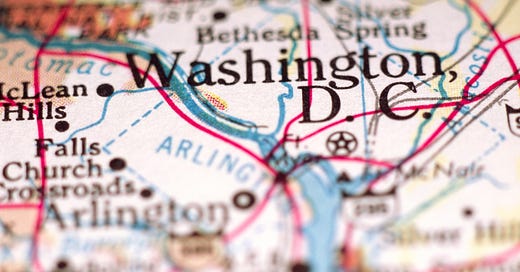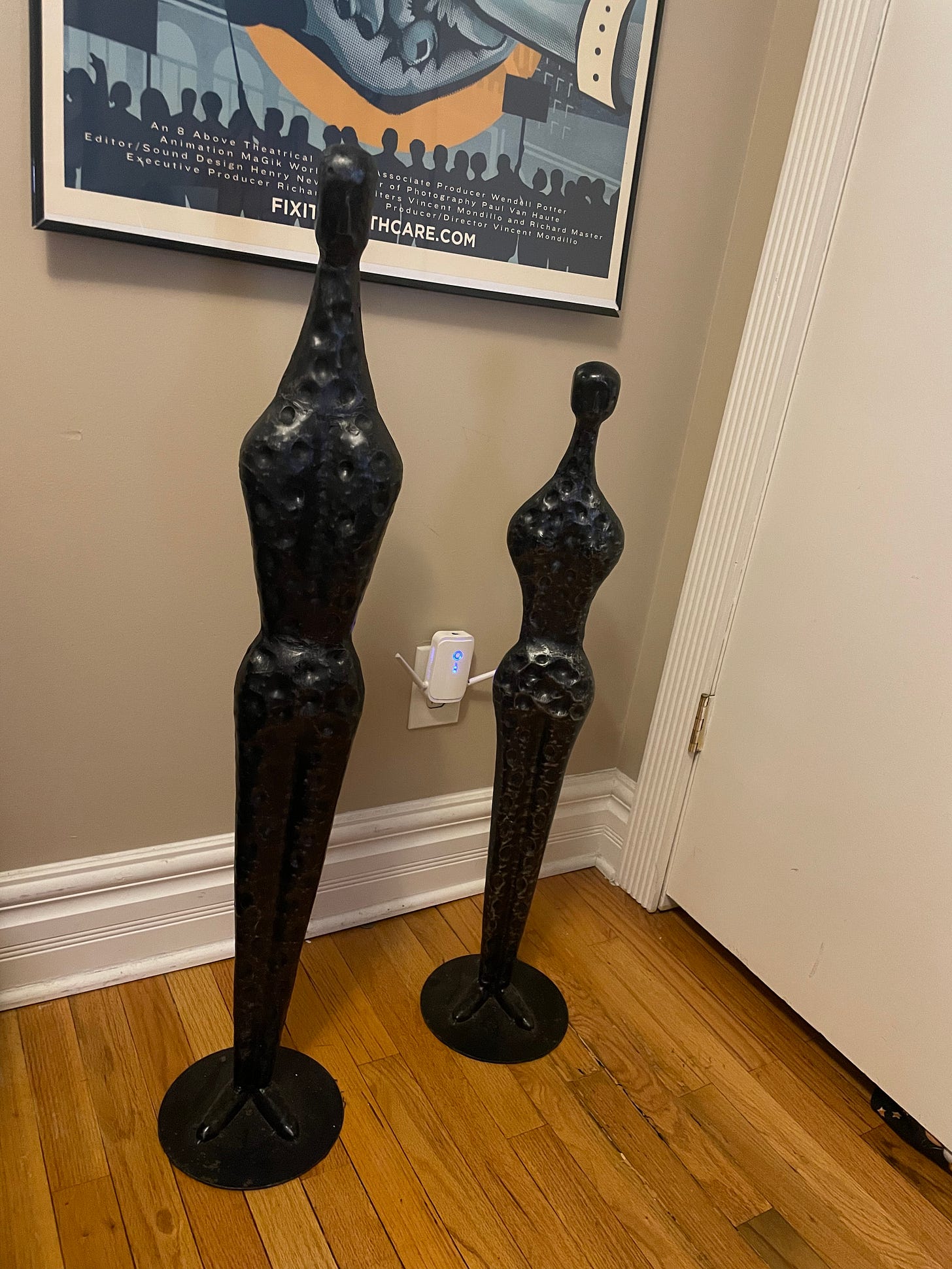Humana to shutter Louisville, Kentucky headquarters; top executives now working out of Washington, D.C.
As many of you know, I started my career in the corporate health insurance business at Humana in 1989. I worked in the company’s 27-story pink granite tower, designed by renowned architect Michael Graves and overlooking the Ohio River in downtown Louisville. The building was just four years old at the time, and it demanded attention. To this day, it is still one the tallest and most striking buildings in the state.
I thought I had made it to the big leagues when I entered the lobby for the first time. To get to the elevator, I had to walk past two towering Giacometti sculptures, part of Humana president Wendell Cherry's impressive art collection. (I was dubbed sub-Wendell by CEO David Jones’s assistant to distinguish me from the more important Wendell). When I got to my new office on the 6th floor, across the hall from the C-Suite, I noticed a painting by Paul Klee, also a part of Cherry’s collection. Expensive art graced many walls in the Humana building, which also included the most tricked-out gym I’d ever seen. In addition to state-of-the-art equipment, it also included several racquetball courts and a single squash court–because Jones played squash.

I worked with all the top execs while I was there, including CFO Carl Pollard. The first time I met Pollard was in an elevator. Two things made that brief elevator ride memorable. First, Pollard was wearing a full-length fur coat. I’d never seen a man dressed like that. Not my style, but I was impressed.
I introduced myself as the new guy hired by Public Affairs VP George Atkins, who, I later learned, was not one of Pollard’s favorites. His reply to my hello was the second reason that ride was one I’ll never forget. “That’s just what we need,” he said without even looking in my direction. “Somebody else in public affairs to f**k things up around here.”
Atkins told me later he and Pollard didn’t “gee-haw.” No doubt.
Despite the CFO’s feelings about his company’s public affairs shop, I would climb Humana’s corporate ladder anyway. I handled a long list of crisis communications situations while I was there, and I helped manage communications when the company decided to get rid of all its hospitals in the US and Europe to focus exclusively on selling health insurance, especially to seniors in Florida. (That would be the second time the company reinvented itself. It started out in life as a nursing home company). By the time I left for Cigna in 1993, I was head of communications, reporting directly to Wayne Smith, who became president after Cherry died of lung cancer at the age of 55 in 1991. Atkins, sadly, was in jail after being convicted of fraud charges. (Pollard would fare much better. Among other ventures, he invested in thoroughbred race horses and served for years as chairman of the board of Churchill Downs, Incorporated, owner and home of the Kentucky Derby.)
I’m taking you down this memory lane for a purpose. I learned last week that Humana is ditching its pink palace in a cost-cutting move to please shareholders, who have not been happy with the company of late. When I was at Humana, Kentucky’s only Fortune 500 company, it occupied every floor of that fancy building at 500 W. Main Street. But in recent years, the company had relocated many employees to cheaper, less-grand digs on the outskirts of downtown. Many others work remotely.
And, as it turns out, many of the top executives had already left Louisville and, beginning in 2020, were working out of a “trophy office” in Washington. That makes sense when you consider that almost all of Humana’s revenues and profits these days depend on government business. It is the second-largest player in Medicare Advantage, behind UnitedHealthcare, and it manages the military’s TRICARE program and a chunk of Medicaid. Its incoming CEO plans to work in DC, not Louisville. He’ll be able to scoot up to Capitol Hill or the White House in minutes if need be. Undoubtedly, Humana’s DC-based executives are already scooting to both places now that both Congress and the White House are paying more attention than ever before to how Medicare Advantage plans are cheating taxpayers and seniors out of billions of dollars a year. The commission that advises lawmakers on Medicare issues said last month Medicare Advantage plans will be overpaid to the tune of $88 billion this year. Another study from fall 2023 found Medicare Advantage overpayments reach $140 billion a year.
The company’s top executives undoubtedly also are spending a lot of time meeting with its biggest shareholders to try to assuage their concerns about Congressional and White House actions that could have a negative impact on profits as well as the fact that Humana’s MA enrollees are going to the doctor more often than executives had anticipated.
The company said on January 25 that it actually lost more than half a billion dollars in the fourth quarter of 2023 because Humana’s Medicare Advantage enrollees used more health care than investors and Wall Street financial analysts had expected. Shareholders lost a ton of money that day: the company’s stock price fell 11% on the day executives had to admit that.
Shareholders have actually lost a lot on their investments in recent months. The stock price has dropped almost $200 per share since October 1, 2022, when the share price hit $558.08. It closed yesterday at $362.29.
For a more in-depth look at Humana’s Wall Street problems–and Medicare “(dis)Advantage” more broadly–I encourage you to read Preston Alexander’s brilliant analysis in his irreverent but always-on-the-money newsletter, The Healthcare Breakdown.
A fun tidbit
As a homage to my days working in The Humana Building, my team and I have our own knock-off Alberto Giacometti sculptures that have watched over us for several years.








Great article. Because of everything I've learned from you and others on this topic, as we just signed my husband up for Medicare Part B and needed to decided on supplement vs Advantage...we choose Supplement, but man was the broker really trying to sell MA plans!! Had I not done my homework, we probably would have gone MA. When i said to her, these MA prices seem too good to be true...they're like 1990 copays, etc, how do they do it? She didn't have an answer. I know how they do it - denials and small networks - no thanks! Thanks Wendell!